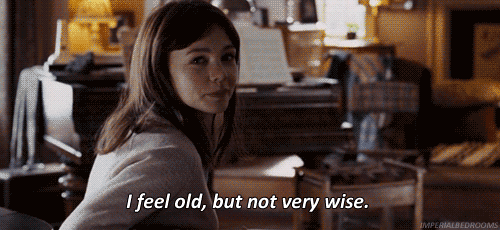Source: http://peterpanxwendy.tumblr.com/ohana, taken from 'Pocahontas' (1995), directed by Mike Gabriel and Eric Goldberg
It is so weird how time flies when you are having a good, creative time. The festival is officially over and even though I am quite relieved that it is done, I cannot help but feel a little bit melancholic at the same time. Working at the EEFF has been an amazing experience for me and so have the 2 weeks of the actual festival. I got to work with new people and explore new, interesting aspects of the job (namely venue managing and what the work of a runner entails), I had the chance to meet and take care of foreign directors and producers who visited the festival but did not really knew anyone else in the city, and came across people that could potentially be beneficial during job seeking after this MA is over.
Taken from the East End Film Festival's Facebook page
After the intensity of the first few days, things got more chilled as time passed, since we had fewer and fewer responsibilities, as time passed. The most integral part of the last days was... partying. I am saying this in all seriousness. Festival guests that came to London for a few days wanted to see what the night life of the city has to offer, and the EEFF team was more than happy to show them around. Apart for been good hosts, going out at night after a hard day's work also helps to bring the team closer, as well as offers networking opportunities, especially in the festival parties, where a lot of people of the industry are gathered together, having fun, and getting drunk, which makes it easier for them (but also for me) to talk to them. It might sound weird, but parties are indeed a vital part of a festival, not only because of the fact that practically everyone likes dancing and drinking, but also because it reinforces team spirit and gives a sense of community to audience and guests.
Taken from the East End Film Festival's Facebook page
Parties and fun aside, there is nothing that can make a festival worker happier than listening to directors and producers saying how pleased they are with the co-operation and how thankful they are for all our help. It makes it all worthwhile to know that the filmmakers are satisfied with how it went. That is practically the very reason we are all doing this!
It is always sad to say goodbye to something you love. On the bright side, this experience gave me so much insight into how film festivals are run, that I will be forever grateful to everyone that I got to work together with this year. My negotiation skills got better, thanks to the King's Professional Skills programme and of course the practice that I did during my internship (securing films with a low screening fee is not an easy job, but sales agents and producers are always happy to lower the price for a better position in the programme that will offer more exposure) and I got more confident and fluent (even though I still need to work on my accent, as my Director stated that 'your written speech is better than your oral'). Furthermore, I found out what my strengths and weaknesses are and how I can sell my skills to a new employer, and, most importantly, I was able to secure a couple of interviews because of my experience here. Plus, it was quite satisfying putting things I learned in this MA into practice.
There is still a long way to go till I reach my highest career aspirations, and a lot of things yet to learn but, as they say, 'you have to start somewhere', and my start was pretty brilliant!
So long, and thanks for all the fish.
There is still a long way to go till I reach my highest career aspirations, and a lot of things yet to learn but, as they say, 'you have to start somewhere', and my start was pretty brilliant!
So long, and thanks for all the fish.










